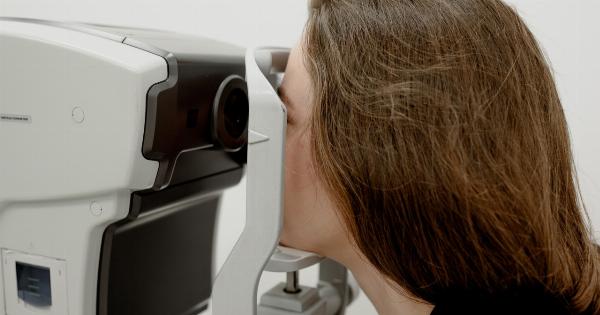Infertility affects millions of couples around the world, causing frustration, emotional distress, and feelings of despair.
However, thanks to advancements in scientific research and technology, there is new hope on the horizon for those struggling to conceive. In this article, we will explore the power of discovery and its potential in providing innovative solutions for infertility.
Understanding Infertility
Infertility is a condition characterized by the inability to conceive after a year of regular unprotected intercourse.
It can be caused by various factors, including hormonal imbalances, structural abnormalities, genetic issues, or underlying health conditions. Both men and women can experience infertility, and it affects approximately 15% of couples worldwide.
Advancements in Research and Technology
Over the years, researchers and scientists have dedicated their efforts to unraveling the mysteries surrounding infertility.
Their commitment to understanding its causes and developing effective treatments has led to significant advancements in the field. The following are some of the most noteworthy developments:.
1. Reproductive Genetics
Reproductive genetics is a rapidly evolving field that focuses on identifying genetic defects that may contribute to infertility. Through genetic testing, scientists can detect abnormalities and better understand their impact on fertility.
This knowledge allows for the development of personalized treatment plans, including the use of assisted reproductive techniques like in vitro fertilization (IVF) or preimplantation genetic testing to increase the chances of successful conception.
2. Cryopreservation
Cryopreservation, also known as freezing, is another breakthrough in fertility treatments. It involves the preservation of eggs, sperm, or embryos at extremely low temperatures for future use.
This technique has revolutionized fertility preservation for individuals undergoing cancer treatments or those wishing to delay parenthood. Cryopreservation allows for the storage of reproductive cells, ensuring that individuals have the option to pursue parenthood later in life.
3. Ovarian Stimulation
Ovarian stimulation involves the use of medications to promote the development and release of multiple eggs during a woman’s natural menstrual cycle. This technique is often employed in conjunction with assisted reproductive technologies like IVF.
By stimulating the ovaries to produce multiple eggs, the chances of successful fertilization and implantation are significantly increased, providing hope for couples struggling with infertility.
4. Artificial Insemination
Artificial insemination, also known as intrauterine insemination (IUI), is a fertility treatment that involves the direct placement of sperm into a woman’s uterus.
It is a less invasive and more affordable option compared to other assisted reproductive techniques. Artificial insemination is often recommended for couples facing male factor infertility or unexplained infertility. By bypassing potential barriers and optimizing the sperm’s chances of reaching the egg, this technique offers hope for conception.
5. Assisted Reproductive Technologies
Advanced assisted reproductive technologies, such as IVF, have revolutionized the field of infertility treatment. IVF involves the fertilization of eggs with sperm outside the body in a laboratory setting.
After the embryos have developed, they are transferred to the woman’s uterus for implantation. IVF has helped countless couples conceive and is particularly effective for individuals facing issues like tubal blockages, low sperm count, or unexplained infertility.
6. Stem Cell Research
Stem cell research holds great promise for the future of infertility treatment. Scientists are exploring the potential of using stem cells to generate eggs, sperm, or even artificial reproductive organs.
This groundbreaking research could provide new options for individuals who have exhausted other fertility treatments or those facing severe fertility challenges.
7. The Role of Epigenetics
Epigenetics, the study of how genes are influenced by environmental factors and lifestyle choices, is shedding light on the complexities of infertility.
By understanding how factors such as diet, stress, and exposure to toxins affect fertility, researchers can develop personalized interventions to optimize reproductive health. Epigenetic discoveries have the potential to unlock new avenues for tailored infertility treatments.
8. Advances in Male Infertility Treatments
While female infertility has received significant attention, advancements in male infertility treatments are equally crucial.
Researchers are working on innovative solutions, such as testicular sperm extraction (TESE), microsurgical techniques, and medications to improve sperm production and quality. These advancements aim to address the diverse causes of male factor infertility and provide effective treatments for couples struggling to conceive.
9. The Power of Big Data
The emergence of big data analytics has had a profound impact on infertility research and treatment. By analyzing vast amounts of patient data, researchers can identify patterns, uncover potential risk factors, and develop predictive models.
This knowledge allows healthcare providers to offer personalized care and improve the chances of successful conception by tailoring treatments to each individual’s unique needs.
10. Holistic Approaches
Recognition of the interconnectedness between physical and emotional health has led to the integration of holistic approaches in infertility treatments.
Mind-body interventions, such as stress reduction techniques, mindfulness, and acupuncture, have shown promising results in improving fertility outcomes. By addressing not only the physical aspects but also emotional well-being, holistic approaches empower individuals and enhance their chances of conceiving.
Harnessing the Power of Discovery for Infertility Solutions
The advancements discussed in this article highlight the transformative potential of scientific research and technology in addressing the challenges of infertility.
By harnessing the power of discovery, we can continue to explore and develop innovative solutions, providing hope and new possibilities for couples on their journey to parenthood. While infertility may present unique obstacles, the power of human resilience and scientific progress offers promise for a fertile future.




























